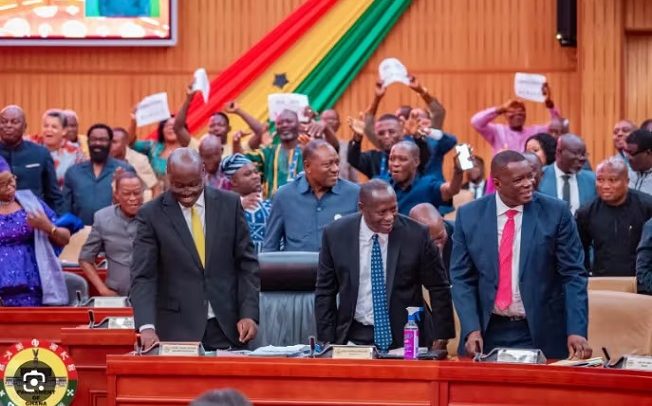The Opposition National Democratic Congress (NDC) Caucus in Parliament has rejected a petition to recall Parliament for urgent government business, citing insufficient grounds and inappropriate timing, with the general elections just 11 days away.
Led by Cassiel Ato Forson, the NDC Leader in Parliament argued that the petition, submitted by members of the New Patriotic Party (NPP) caucus, does not meet constitutional or procedural requirements for recalling Parliament.
Specifically, he noted the absence of signatures from at least 15% of Members of Parliament, as stipulated under Article 112(3) of the Constitution and Standing Order 53(1).
Ato Forson also dismissed claims of urgency, stating that the proposed business can wait until after the December 7 elections.
He emphasized that recalling Parliament at this time would disrupt critical electoral preparations, including campaign activities, training of polling agents, and logistical arrangements.
This development is not the first time the NPP caucus has initiated an emergency sitting this year, only to fail to deliver on its stated objectives.
On November 7, the NPP side failed to mobilize enough MPs to transact business, leading to an indefinite adjournment.
The NDC Leader in Parliament called for a leadership meeting after the elections to address outstanding matters, emphasizing the need for all stakeholders to focus on ensuring peaceful, credible, and fair elections.
Background of the Dispute
The NDC has been critical of the NPP’s handling of parliamentary business, accusing them of attempting to rush through important legislation without proper debate or consultation.
In a recent statement, Ato Forson warned that the NPP’s actions could disrupt Ghana’s democratic process and exacerbate tensions ahead of the elections.
The NDC’s decision to boycott the recall is seen as a strategic move to prevent the NPP from pushing through legislation that could potentially benefit their party in the upcoming elections.
Implications of the Boycott
The boycott is likely to delay the passage of several key bills, including the Free SHS policy, which has been a contentious issue between the two parties.
The NPP has accused the NDC of obstructing the legislative process and delaying important business, while the NDC has countered that the NPP is attempting to undermine the democratic process.
As the elections draw near, the standoff between the two parties is expected to intensify, with the NDC determined to prevent the NPP from pushing through legislation that could potentially disadvantage them in the polls.
BY Daniel Bampoe


